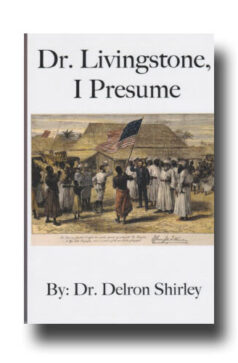God asked one requirement of Solomon when He established him on the throne of his father David – that he walk according to the legacy that his father had established. (I Kings 3:14, 9:4, 11:38) However, Solomon failed to do so (I Kings 11:6) and set in motion a pattern that was to differentiate all future generations in the kingdom – those who continued in the legacy of their ancestor David and those who would fail to do so. There were those who totally rebelled against the legacy – Abijam (I Kings 15:3) and Ahaz (II Kings 16:2, II Chronicles 28:1). There were also those who honored the legacy but failed to fully appropriate it in its totality – Asa (I Kings 15:11) and Amaziah (II Kings 14:3). And there were those who latched on to the legacy and allowed it to pilot their lives and reigns – at least, to some degree. These legacy descendants included such impactful leaders as Hezekiah (II Kings 18:3, II Chronicles 29:2), Josiah (II Kings 22:2-3, II Chronicles 34:2), Rehoboam (II Chronicles 11:17), and Jehoshaphat (II Chronicles 17:3).
David’s impact was so powerful that for generations after his death God made decisions about how He would deal with the nation based not upon the current situation in the country but upon the impetus that King David had set in motion. First Kings chapter eleven recounts the story of how Solomon’s wives turned his heart from the Lord and he began to worship the pagan gods that they had introduced in Israel. The anger of the Almighty was kindled against Solomon, and He proclaimed that the kingdom would be torn away from Solomon’s hand. “Yet,” God added, “for the sake of thy father David, I will not do it during your lifetime. And for the sake of My servant David, I will give one tribe to your son to continue your lineage.” (I Kings 11:12-13, 32-36) In the days of Abijam, God considered removing the lamp of the Davidic line from Jerusalem; again, because of His vow to David, God showed mercy and extended the house of His servant. (I Kings 15:3-5) When Jehoram brought the wicked Athaliah into the royal family, God considered total destruction of Judah; yet, His promise to King David again stayed His hand. (II Kings 8:19, II Chronicals 21:7) When the Assyrian general Sennacherib surrounded the city of Jerusalem in the days of Hezekiah, it was, again, for the sake of David that God spared the city and the Judean king. (II Kings 19:34 and Isaiah 37:35) Hezekiah’s life was also extended because of God’s covenant with David. (II Kings 20:5-6) Eventually, the situation in Israel became so blatantly wicked that God did release His wrath upon King Jehoiachin (Coniah). God ultimately declared that no man of his seed would ever sit on the throne of his father David. (Jeremiah 22:28-30) Had God finally forsaken His promise to establish the house of David? No! Read on. Only five verses later, the prophet declares,
Behold, the days come, saith the LORD, that I will raise unto David a righteous Branch, and a King shall reign and prosper, and shall execute judgment and justice in the earth. (Jeremiah 23:5)
The prophet Amos also resounded this promise when he spoke of the restoration of the tabernacle of David (Amos 9:11-12), a promise confirmed in the New Testament to be a prophecy of the coming of Jesus. (Acts 15:16)
Let’s step back to the invasion of Jerusalem by the Assyrian king Sennacherib to see if we can glean a little insight into what went on behind the scenes to activate the deliverance of the city. Imagine with me the scene.
His eyes glaring and nostrils bulging, the messenger screamed out his threats. He recited a litany of his victories in one ravaging campaign after another, terrifying the people and belittling their ability to defend themselves against this mighty war machine that was camped just outside the city gates. Mockingly, he threatened that any assistance that could possibly be summoned from their allies would be like trusting in a paper tiger to come to their defense. His terrorization continued by ridiculing their faith in God to save them and even suggesting that it was God Himself who had sent him to destroy them. Everyone in the range of his voice knew that his threats were valid; after all, their nation was already buckling under the iron fist of his tyrannical rule to the point of robbing every gold and silver coin from not only the public treasury but also the coffers of the temple and even to stripping the gold plating from the sanctuary doors to satisfy the aggressor’s greed and avarice.
Only one man out of the whole nation – an otherwise faceless, voiceless, unknown “nobody” of history – was chosen to go out and face this raging bully. But on this one occasion, Eliakim the son of Hilkiah stepped out of the shadows to take a significant place in the forefront of the saga of his country’s destiny. Eliakim stood squarely in the face of the aggressor and challenged him to stop speaking in the Hebrew language but to rather use the native language of the Assyrians because all the top officials of Israel understood the tongue of their oppressor. Rabshakeh retorted that it was his deliberate intention to speak in the language of the common foot soldiers in order to strike fear into them as well as to intimidate the executives and bureaucrats. He even punctuated his decree with the prediction that by the time his dastardly deeds were done these poor men would be reduced to eating their own dung and drinking their own urine. Then, in an apparent attempt to incite rebellion and insubordination, he offered the soldiers the option of desertion from the ranks and surrender to his forces with the promise of a peaceful, prosperous life.
Eliakim returned to King Hezekiah and testified of the desperate plight that loomed over the nation. Quickly upon the heels of his report came a letter from Rabshakeh’s potentate, King Sennacherib of Assyria, spelling out the certain destruction that he planned to carry out upon Jerusalem. It was at that moment that the prophet Isaiah stepped forward with a word of comfort that was soon fulfilled as an angel of the Lord waged supernatural war against the Assyrian army, taking out one hundred eighty-five thousand of them and causing the decimated remnant of the army to retreat without even touching the sacred capital.
Even though nothing earthshaking, pivotal, or miraculous took place during the small part that Eliakim played in this episode of Israel’s history, it still seems significant that he was chosen to be the one man who marched boldly onto center stage as this drama was unfolding. And we must ask ourselves why he was chosen and what was the import of the role he played. The answer can be found in the words of the same prophet who foretold the decimation and withdrawal of the Assyrian army:
And it shall come to pass in that day, that I will call my servant Eliakim the son of Hilkiah: And I will clothe him with thy robe, and strengthen him with thy girdle, and I will commit thy government into his hand: and he shall be a father to the inhabitants of Jerusalem, and to the house of Judah. And the key of the house of David will I lay upon his shoulder; so he shall open, and none shall shut; and he shall shut, and none shall open. And I will fasten him as a nail in a sure place; and he shall be for a glorious throne to his father’s house. And they shall hang upon him all the glory of his father’s house, the offspring and the issue, all vessels of small quantity, from the vessels of cups, even to all the vessels of flagons. (Isaiah 22:20-24)
In this prophecy, it becomes clear that the reason Eliakim became the man of the hour at this particular moment in history was that he seemed to have a unique God-given, level-headed, unwavering confidence and trust in God in the face of the tumultuous situation. The importance of his role was to establish a sense of stability in the people – and the unique quality or characteristic that qualified him for this role was that he was the one with the key of David. Eliakim’s historic role is recounted twice – in II Kings chapters eighteen and nineteen and again in Isaiah chapters thirty-six and thirty-seven. In both records, the specific reason given for the deliverance of the city was that it was for the sake of David. (II Kings 19:34 and Isaiah 37:35) In some way, Eliakim stood in the stead of David and held his key. Eliakim’s significant contribution was the stance he took against the Assyrian messenger who tried to intimidate the people of Jerusalem into surrendering to his army. Eliakim stood up to this intimidator with faith and confidence in God until the Lord caused the invading army to miraculously retreat.
Although the scriptures do not specifically identify what the key of David was, it is easy for us to look back into the life of David and find one characteristic that seems to stand out that could have made the difference between him and any other who lacked this quality. It is likely that we need not go any further than the criteria set for his selection for the throne of Israel. After Samuel had surveyed the seven older sons of Jesse without finding a worthy candidate, the Lord revealed to him that he was looking at the wrong score card when evaluating his options. God made His point that the heart of the matter is actually the matter of the heart.
But the LORD said unto Samuel, Look not on his countenance, or on the height of his stature; because I have refused him: for the LORD seeth not as man seeth; for man looketh on the outward appearance, but the LORD looketh on the heart. (I Samuel 16:7)
David obviously understood that this was his key to success and determined to keep his heart in a perfect relationship with his God. “I will behave myself wisely in a perfect way. O when wilt thou come unto me? I will walk within my house with a perfect heart.” (Psalm 101:2) Even after he sinned with Bathsheba and had her husband killed, the king’s prayer was that God would re-establish his heart before Him. (Psalm 51:10) Consequently, the New Testament characterizes David as being a man after God’s own heart. (Acts 13:22)
King David desired to pass this spiritual key on to his son Solomon who was to succeed him on the throne. First Chronicles 28:9 records David’s instructions to Solomon that he should serve the Lord with a perfect heart. In verse nineteen of the following chapter, we find David in prayer for his son, interceding that the Lord will give him a perfect heart. Unfortunately, the biblical summation of Solomon’s life is that “his heart was not perfect with the LORD his God, as was the heart of David his father.” (I Kings 11:4)
Second Chronicles 25:2 records that Amaziah did that which was right in the sight of the Lord, yet not with a perfect heart. He was passionate in his campaign to stamp out idolatry, yet he failed to passionately pursue the Lord Himself. Because of this he, like Asa before him, failed to obtain what is likely the greatest promise in the scripture: “The eyes of the LORD run to and fro throughout the whole earth, to shew himself strong in the behalf of them whose heart is perfect toward him.” (II Chronicles 16:9) This is the universal blessing and promise of intervention by God that can only be unlocked with the key of David – a perfect heart before the Lord.
It was the promise extended to the church at Philadelphia in Revelation 3:7, which says that the key of David was activated upon their behalf. One unique quality that we notice about the church at Philadelphia is that, of all seven churches addressed in chapters two and three of the Apocalypse, they are the only congregation indicated as having any relationship to the Word of God. Not only that, they are twice commended for their faithfulness to God’s Word. (verses 3:8, 10) Though all seven churches are admonished to hear what the Spirit is saying, apparently only this one listened and heeded. Like David, they recognized that the key to having a perfect heart was to hide God’s Word in their hearts. (Psalm 119:11) For them – and for us – the key to the kingdom is a passionate love for the Word of God.
Eliakim apparently had the same heart attitude of love for and confidence in God – the key of David. With that key, he could stand squarely in the face of terror and have faith until he saw the enemy retreat in defeat, humiliation, and terror. David was considered to be a man after God’s own heart (Acts 13:22) even though he had so many moral failures. His prayer of repentance in the fifty-first psalm explained why. His plea before God was that the Lord would not take the Holy Spirit from him and that He would renew a right heart within him. Apparently, David understood the necessity of what Paul would later describe as the seal of the Holy Spirit (Ephesians 1:13, 4:30) – the quickening work of the Holy Spirit that constantly reminds the sensitive believer of the validity – or lack thereof of – his every thought, motive, and action.










